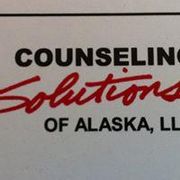3 Ways Cold Weather Can Affect Your Mood

The winter blues are a very real phenomenon. Seasonal depression, known as seasonal affective disorder, is a type of mood disorder that comes about during the winter when cold weather is more prevalent, and there are fewer hours of sunlight. Below are a few ways that the weather and environment create the conditions for depression and melancholy during the winter months.
How Cold Weather Impacts Your Mood
1. Less Sunlight Disrupts the Body
The human body needs sun. It is our most abundant source of vitamin D, a crucial element for brain health thought to help in the production of serotonin; this chemical is the neurotransmitter central to feelings of happiness, balance, and well-being. When a person's exposure to sunlight decreases, their brains respond by producing less serotonin. As a result, fatigue, restlessness, and depression can develop.
2. The Weather Can Be Stressful
 The stresses of living in a cold climate are most prominent during this time of year. You have to leave more time in your schedule for driving in winter weather conditions. Additionally, a spike in heating costs can be a financial burden. Finally, shoveling snow and de-icing walkways on a regular—sometimes daily— basis can be tedious. All of these factors can increase cortisol levels, causing stress.
The stresses of living in a cold climate are most prominent during this time of year. You have to leave more time in your schedule for driving in winter weather conditions. Additionally, a spike in heating costs can be a financial burden. Finally, shoveling snow and de-icing walkways on a regular—sometimes daily— basis can be tedious. All of these factors can increase cortisol levels, causing stress.
3. Cold Can Cause Lethargy
During the winter, the cold and snow often make it more of a challenge to go outside on a regular basis, get fresh air, and engage in a regular exercise or fitness routine. A lack of exercise means the brain is producing fewer endorphins, the feel-good chemicals that are natural painkillers, sleep aids, and stress relievers. If you venture out infrequently in the winter, you are also vulnerable to the effects of social isolation, including feelings of hopelessness and loneliness.
The human body has biological responses to the cold, and there is no shame in asking for help when the winter blues strike. The mental health professionals at Counseling Solutions of Alaska are here for you. Serving Anchorage, AK, they help their clients work with depression, stress, anxiety, grief and loss, and PTSD. Schedule an appointment by calling (907) 644-8044 or connecting on their website.
About the Business
Have a question? Ask the experts!
Send your question

